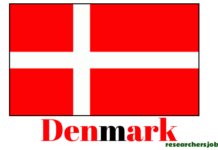PhD Opportunities in FoodBioSystems DTP: The FoodBioSystems Doctoral Training Partnership (DTP) is offering 57 PhD projects spanning various scientific disciplines, such as agricultural sciences, bioinformatics, data science, environmental engineering, food science, and veterinary sciences. Approximately 30 salaried 4-year studentships will be awarded through a competitive process. These positions provide an opportunity for interdisciplinary research at the interface of engineering and life sciences. The program aims to equip researchers with skills for future careers in academia and industry.
- 🎓 PhD Opportunities: The FoodBioSystems Doctoral Training Partnership (DTP) is offering 57 PhD projects in various scientific fields.
- 🌐 Eligible Backgrounds: Candidates from diverse backgrounds, including agricultural sciences, artificial intelligence, biochemistry, data science, environmental engineering, psychology, and more are encouraged to apply.
- 📅 Application Details: The online application form opens on December 11, 2023. The deadline for submission is January 22, 2024, at 10:00 GMT.
- 🏆 Studentships: About 30 salaried 4-year studentships will be awarded through a competitive process. The program starts in autumn 2024 at partner universities such as Aberystwyth, Brunel, Cranfield, Queen’s, Reading, and Surrey.
- 💰 Funding: Successful applicants will receive a tax-free stipend, with variations in amounts depending on the location and university.
- 🌐 How to Apply: Applications are accepted online, and each candidate can apply to a maximum of two PhD projects.
- 🌍 Diversity and Inclusion: The DTP is committed to equality, diversity, and inclusion, encouraging applications from under-represented and disadvantaged groups.
- ⏰ Timeline: The application deadline is January 22, 2024. The selection process includes various criteria, and successful candidates will benefit from a comprehensive training program and a four-year stipend.
- 📚 Research Projects: Projects cover a wide range of areas, including food safety, animal health, alternative food systems, decarbonizing food systems, gut microbiota, nutrition, and more.
- 📑 Application Requirements: Applicants need official transcripts, proof of English proficiency, and a confidential academic reference letter.
- 🤝 Collaborative Research: Successful candidates will engage in co-supervised research across two academic institutions, gaining skills in food systems, data analysis, and modeling.
- 🌐 Additional Resources: Interested individuals are encouraged to explore the DTP website for more details on the training program, ongoing projects, and insights from current researchers.
- 🔄 Part-Time Options: Part-time registration is available, and studentships can be combined with part-time employment, with a recommended time commitment.
- 🌐 Guaranteed Interview Scheme: The DTP offers a guaranteed interview scheme and mentoring for eligible applicants from under-represented ethnic groups.
- 📈 Previous Success Rates: Information on previous applicant success rates is available for review.
- 🌐 Project List: The detailed list of available projects is provided, categorized by research areas, lead supervisors, and co-supervisors.
- 🌍 Project Focus Areas: Projects encompass diverse areas such as food safety, decarbonizing food systems, alternative food systems, animal health, and more.
- 🌱 Sustainable Agriculture: Some projects focus on sustainable agriculture, exploring topics like crop protection, livestock health, and regenerative agriculture.
- 🌍 Global Impact: Research projects aim to address global challenges in food systems, contributing to areas like food safety, security, and sustainability.
- 📄 Applicant Guidance: Applicants are advised to download the FBSDTP 2024 Entry Applicant Guidance for essential information during the application process.
- 🌱 Disciplinary Approach to Vitamin D Effects on Genomic Stability
- Researchers: Ruan Elliott (University of Surrey), Marcus Tindall (University of Reading)
- Topic: Nutrition (human)
- Project Code: FBS2024-098-Bath-sq
- Title: Improving iodine intake in adults following a plant-based diet – a mixed methods study
- Researchers: Sarah Bath (University of Surrey), Jayne Woodside (Queen’s University Belfast)
🌿 Enhancing Plant/Fungi-Based Foods for Nutrition, Health, and Sustainability
- Researchers: Kourosh Ahmadi (University of Surrey), Claire Williams (University of Reading)
- Topic: Nutrition (human)
- Project Code: FBS2024-103-Ahmadi-sr
- Title: Improving the nutritional, health, and sustainability profile of existing or novel plant/fungi-based foods – A STAR Hub-DTP partnership application
🌾 Advancements in Plant/Crop Systems
- Researchers: Gary Stephens (University of Reading), Maurice Bosch (Aberystwyth University)
- Topic: Plant / crop systems
- Project Code: FBS2024-014-Stephens-ra
- Title: A receptor-ligand module with practical applications to improve food production
- Researchers: Sofia Kourmpetli (Cranfield University), Faisal Rezwan (Aberystwyth University)
- Project Code: FBS2024-052-Kourmpetli-ca
- Title: Seed microbiome engineering: a route to sustainable agriculture
- Researchers: Guy Kirk (Cranfield University), John Hammond (University of Reading)
- Project Code: FBS2024-055-Kirk-cr
- Title: The mechanisms and genetics of phosphorus-efficiency in crop plants
- Researchers: Huw Jones (Aberystwyth University), Luke Bell (University of Reading)
- Project Code: FBS2024-061-JonesH-ar
- Title: Harnessing cell permeable peptides to enhance crop development and biochemistry
- Researchers: Suzie Hingley-Wilson (University of Surrey), Linda Oyama (Queen’s University Belfast)
- Project Code: FBS2024-068-Hingley-Wilson-sq
- Title: Innovative encapsulation approaches for seed protection and longevity
- Researchers: Martin Chadwick (University of Reading), Huw Jones (Aberystwyth University)
- Project Code: FBS2024-092-Chadwick-ra
- Title: Editing out insecticide use: Use of gene editing Eruca sativa for more effective biofumigation
🌱 Insights into Soil Systems
- Researchers: Alexey Larionov (Cranfield University), Tom Sizmur (University of Reading)
- Topic: Soil systems
- Project Code: FBS2024-047-Larionov-cr
- Title: Multi-omics analysis of nitrogen metabolism by the soil microbial community
🎓 Application Information
- Academic Eligibility:
- Upper 2nd class degree or equivalent required.
- Consideration for lower Bachelors with merit or above at Masters level.
- Funding Eligibility:
- Home student criteria for UK/Irish Nationals or those with settled/pre-settled status.
- International students limited to 30% of total studentships.
- Language Proficiency:
- English proficiency required by hosting university.
- Selection Criteria:
- Shortlisting, interviews, and selection panel review.
- Timetable:
- Projects advertised: Dec 6, 2023
- Application deadline: Jan 22, 2024
- Interviews: Feb 21 – Mar 6, 2024
- Decision letters: Mar 25, 2024
Designation: PhD Student
Research Area: Agricultural Sciences, Bioinformatics, Data Science, Environmental Engineering, Food Science, Veterinary Sciences, and more.
| Research area | Project number | Project title | Lead Supervisor / University | Co-Supervisor / University |
| Across the Food Chain projects | FBS2024-026-Patriarca-cr | Reducing Food Loss and Waste in the tomato products food chain | Andrea Patriarca, Cranfield University | Alexey Mikaberidze, University of Reading |
| Across the Food Chain projects | FBS2024-054-Kliem-rs | Bioaccessibility of lipids from dairy products: the cheese matrix | Kirsty Kliem, University of Reading | Terri Grassby, University of Surrey |
| Alternative Food Systems | FBS2024-003-Whitworth-aq | Crop protection: protecting farmed insects from pathogens using predatory bacteria | David Whitworth, Aberystwyth University | Katerina Theodoridou, Queen’s University Belfast |
| Alternative Food Systems | FBS2024-035-MillsC-sq | Optimising the safety and nutritional quality of insect protein ingredients | Clare Mills, University of Surrey | Katrina Campbell, Queen’s University Belfast |
| Alternative Food Systems | FBS2024-088-Chatzifragkou-rq | Alternative oil production from microbial cell factories for food applications | Afroditi Chatzifragkou, University of Reading | Tassos Koidis, Queen’s University Belfast |
| Animal health and livestock agricultural systems | FBS2024-013-Stergiadis-rq | Mechanistic and applied strategies for the production of vitamin B12-enriched milk | Sokratis Stergiadis, University of Reading | Katerina Theodoridou, Queen’s University Belfast |
| Animal health and livestock agricultural systems | FBS2024-021-Robinson-qa | Blood and guts: functional genomics to probe blood-feeding in liver fluke | Mark Robinson, Queen’s University Belfast | Gabriel Rinaldi, Aberystwyth University |
| Animal health and livestock agricultural systems | FBS2024-022-Prada-sq | Future-proofing livestock health by quantifying the burden of disease and benefits of sustainable interventions | Joaquin Prada, University of Surrey | Eric Morgan, Queen’s University Belfast |
| Animal health and livestock agricultural systems | FBS2024-025-Pexas-cr | Substituting soy with insects in UK poultry production: a holistic evaluation of sustainability impacts and trade-offs | Georgios Pexas, Cranfield University | Yiorgos Gadanakis, University of Reading |
| Animal health and livestock agricultural systems | FBS2024-030-Nash-ar | Cows, cannabinoids and terpenes; screening hemp-derived compounds for anti-inflammatory properties to tackle inflammatory disorders of the dairy cow | Deborah (Debbie) Nash, Aberystwyth University | Kirsty Kliem, University of Reading |
| Animal health and livestock agricultural systems | FBS2024-032-Morphew-aq | Close encounters of the protein kind: Exploiting protein-protein interactions for liver fluke control | Russ Morphew, Aberystwyth University | Aaron Maule, Queen’s University Belfast |
| Animal health and livestock agricultural systems | FBS2024-033-Morgan-qa | Bleeding us dry? Protecting livestock from haematophagous parasite coinfections in a warming world | Eric Morgan, Queen’s University Belfast | Rhys Jones, Aberystwyth University |
| Animal health and livestock agricultural systems | FBS2024-041-McBride-as | The importance of sleep: using AI (video-based motion capture systems) to improve the health, resilience and productivity of dairy cows | Sebastian McBride, Aberystwyth University | Matthew Parker, University of Surrey |
| Animal health and livestock agricultural systems | FBS2024-050-Kyriazakis-qc | A novel Bayesian methodology to estimate unobserved traits of cattle for AI-assisted precision feeding | Ilias Kyriazakis, Queen’s University Belfast | Georgios Pexas, Cranfield University |
| Animal health and livestock agricultural systems | FBS2024-063-JonesR-ar | Exploring Bovine TB epidemiology on persistently infected farms via enhanced molecular analysis of the environment and parasitic nematode populations | Rhys Jones, Aberystwyth University | Ian Jones, University of Reading |
| Animal health and livestock agricultural systems | FBS2024-084-Daramola-sq | Understanding fluke evolutionary biology: Finding new ways to sustainably monitor, predict and assess the biological impact of parasite adaptation and regulatory mechanisms | Olukayode Daramola, University of Surrey | Mark Robinson, Queen’s University Belfast |
| Animal health and livestock agricultural systems | FBS2024-085-Cramer-ra | Evaluation and validation of LAP-MALDI mass spectrometry profiling for the detection of bovine tuberculosis (bTB) | Rainer Cramer, University of Reading | Amanda Gibson, Aberystwyth University |
| Animal health and livestock agricultural systems | FBS2024-090-Chalmers-aq | Determining the function and diagnostic potential of EV proteins in liver fluke | Iain Chalmers, Aberystwyth University | Aaron Maule, Queen’s University Belfast |
| Animal health and livestock agricultural systems | FBS2024-093-Carroll-qr | Pioneering Progress: Insights into Effective Animal Welfare Interventions | Grace Carroll, Queen’s University Belfast | Kate Johnson, University of Reading |
| Animal health and livestock agricultural systems | FBS2024-097-Betson-sa | Investigating the gut parasite Eimeria in UK sheep: parasite species diversity and impacts on the gut microbiome | Martha Betson, University of Surrey | Justin Pachebat, Aberystwyth University |
| Animal health and livestock agricultural systems | FBS2024-101-Arnott-qr | The role of precision technologies in future grazing systems: Implications for animal welfare, performance and farm sustainability | Gareth Arnott, Queen’s University Belfast | Sokratis Stergiadis, University of Reading |
| Consumer focused projects | FBS2024-069-Hart-sc | Packaging, date labelling and nutritional quality – can less equal more? | Kathryn Hart, University of Surrey | Kenisha Garnett, Cranfield University |
| Decarbonising food systems | FBS2024-015-Sizmur-rc | Towards net-zero chocolate: carbon and nutrient budgets for compost use on cocoa farms | Tom Sizmur, University of Reading | Ruben Sakrabani, Cranfield University |
| Decarbonising food systems | FBS2024-020-Sakrabani-cq | Evaluating suitability of graphitic carbon from methane cracking to improve soil nutrient retention for crop uptake | Ruben Sakrabani, Cranfield University | Deepak Kumaresan, Queen’s University Belfast |
| Decarbonising food systems | FBS2024-095-Cain-cr | Enhancing Sustainability Assessment Frameworks for Regenerative Agriculture: Integrating Ecological, Social, and Economic Indicators for Comprehensive Analysis | Michelle Cain, Cranfield University | Laurence Smith, University of Reading |
| Food Safety (microbial) | FBS2024-106-Verheecke-Vaessen-cq | Development of novel tests to evaluate the food safety risk associated with mycotoxigenic fungi in wheat | Carol Verheecke-Vaessen, Cranfield University | Katrina Campbell, Queen’s University Belfast |
| Food Safety (microbial) | FBS2024-040-McCarthy-bq | Repurposing artificial sweeteners as infection and contamination control agents | Ronan McCarthy, Brunel University | Brendan Gilmore, Queen’s University Belfast |
| Food Safety (microbial) | FBS2024-048-Landahl-cr | Decipher spatial colonisation and pathogenesis of Fusarium oxysporum f. sp. cepae on onions by assessing associated physical and biochemical changes to decrease food loss | Sandra Landahl, Cranfield University | Luke Bell, University of Reading |
| Food Safety (microbial) | FBS2024-089-Charalampopoulos-rc | Development of novel, biodegradable, active food packaging | Dimitris Charalampopoulos, University of Reading | Natalia Falagan, Cranfield University |
| Food Safety (other) | FBS2024-105-Al-Sid-Cheikh-rs | Microplastics in milk and dairy products: the future of milk in the Plastic Age | Maya Al Sid Cheikh, University of Surrey | Kirsty Kliem, University of Reading |
| Food security | FBS2024-009-Thompson-ca | Advanced gene editing to improve water use efficiency in crops | Andrew Thompson, Cranfield University | John Doonan, Aberystwyth University |
| Food security | FBS2024-023-Potts-rc | Increasing the value of silvoarable agroforestry using understory crops in the tree rows | Simon Potts, University of Reading | Paul Burgess, Cranfield University |
| Food security | FBS2024-042-Mariano-sq | In(ph)inity wars: understanding phages-bacteria evolutionary conflict to design new biocontrol strategies | Giuseppina Mariano, University of Surrey | Linda Oyama, Queen’s University Belfast |
| Food security | FBS2024-044-Lo Iacono-sr | Modelling the impact of diseases on pollinator networks | Gianni Lo Iacono, University of Surrey | Michael Garratt, University of Reading |
| Food security | FBS2024-045-Lloyd-ac | Walk on the Wild Side: improving trait introgression from crop wild relatives | Andrew Lloyd, Aberystwyth University | Fady Moareb, Cranfield University |
| Food security | FBS2024-083-Doonan-ar | AI_BeanBag: Unlocking the Potential of Faba Beans in Sustainable Agriculture and Nutrition | John Doonan, Aberystwyth University | Donal O’Sullivan, University of Reading |
| Gut Microbiota | FBS2024-002 -Wijeyesekera-rs | Interactions between the gut microbiota, vitamin D and bone health: assessing dietary driven approaches to support healthy ageing | Anisha Wijeyesekera, University of Reading | Susan Lanham-New, University of Surrey |
| Gut Microbiota | FBS2024-004-Walton-rs | A probiotic approach targeting the microbiota to improve Irritable Bowel Syndrome symptoms and associated low mood | Gemma Walton, University of Reading | Kathrin Cohen Kadosh, University of Surrey |
| Gut microbiota | FBS2024-046-Lewis-rs | Improving oral iron absorption in infants using prebiotics and probiotics to modify the gut microbiota | Marie Lewis, University of Reading | Arnoud van Vliet, University of Surrey |
| Gut Microbiota | FBS2024-064-Huws-qa | How and why do rumen bacteria talk to each other? | Sharon Huws, Queen’s University Belfast | David Whitworth, Aberystwyth University |
| Gut Microbiota | FBS2024-065-Hunt-sr | Exploring the Impact of Anthocyanin-rich Diets on Gut Microbiome Composition and its Role in Menopause-Related Health Issues: Population-Based and Mechanistic Studies | Julie Hunt, University of Surrey | Glenn Gibson, University of Reading |
| Nutrition (human) | FBS2024-007-Tischler-sr | Plant-based diets for older people in care homes: a realist and psychobiological evaluation | Victoria Tischler, University of Surrey | Lisa Methven, University of Reading |
| Nutrition (human) | FBS2024-012-Su-qr | Odd-Chain Fatty Acids and Gut Bacterial Metabolites in Cardiac Metabolic Remodelling: Implication in the Therapeutic Strategy of Cardiovascular Disease | Qiaozhu Su, Queen’s University Belfast | Vimal Karani, University of Reading |
| Nutrition (human) | FBS2024-029-Oruna-Concha-ra | UMTaste: Understanding the mechanisms by which umami taste influences salty and bitter taste to enable umami to drive salt reduction and improvement in meat alternative protein foods | Maria Jose Oruna-Concha | Jessica Adams, Aberystwyth University |
| Nutrition (human) | FBS2024-036-MillsCE-rs | Food processing: For better or for worse? The impact of fruit drying on bioactivity, bioaccessibility and bioavailability of polyphenols | Charlotte Mills, University of Reading | Terri Grassby, University of Surrey |
| Nutrition (human) | FBS2024-037-Methven-rq | IEat: Integrating eating behaviour and food choice behaviour into sustainable habits for healthy children | Lisa Methven, University of Reading | Jayne Woodside, Queen’s University Belfast |
| Nutrition (human) | FBS2024-059-Karani-rs | Integrating nutrigenetics, metabolomics, diet, lifestyle, and clinical, biochemical, and social parameters in predicting the risk of metabolic diseases and related traits using artificial intelligence based on machine learning algorithms. | Vimal Karani, University of Reading | Shelini Surendran, University of Surrey |
| Nutrition (human) | FBS2024-081-Elliott-sr | Beyond bone health: a multidisciplinary approach to define the functional effects of vitamin D on genomic stability | Ruan Elliott, University of Surrey | Marcus Tindall, University of Reading |
| Nutrition (human) | FBS2024-098-Bath-sq | Improving iodine intake in adults following a plant-based diet – a mixed methods study | Sarah Bath, University of Surrey | Jayne Woodside, Queen’s University Belfast |
| Nutrition (human) | FBS2024-103-Ahmadi-sr | Improving the nutritional, health and sustainability profile of existing or novel plant/fungi-based foods – A STAR Hub-DTP partnership application | Kourosh Ahmadi, University of Surrey | Claire Williams, University of Reading |
| Plant / crop systems | FBS2024-014-Stephens-ra | A receptor-ligand module with practical applications to improve food production | Gary Stephens, University of Reading | Maurice Bosch, Aberystwyth University |
| Plant / crop systems | FBS2024-052-Kourmpetli-ca | Seed microbiome engineering: a route to sustainable agriculture | Sofia Kourmpetli, Cranfield University | Faisal Rezwan, Aberystwyth University |
| Plant / crop systems | FBS2024-055-Kirk-cr | The mechanisms and genetics of phosphorus-efficiency in crop plants | Guy Kirk, Cranfield University | John Hammond, University of Reading |
| Plant / crop systems | FBS2024-061-JonesH-ar | Harnessing cell permeable peptides to enhance crop development and biochemistry | Huw Jones, Aberystwyth University | Luke Bell, University of Reading |
| Plant / crop systems | FBS2024-068-Hingley-Wilson-sq | Innovative encapsulation approaches for seed protection and longevity | Suzie Hingley-Wilson, University of Surrey | Linda Oyama, Queen’s University Belfast |
| Plant / crop systems | FBS2024-092-Chadwick-ra | Editing out insecticide use: Use of gene editing Eruca sativa for more effective biofumigation | Martin Chadwick, University of Reading | Huw Jones, Aberystwyth University |
| Soil systems | FBS2024-047-Larionov-cr | Multi-omics analysis of nitrogen metabolism by the soil microbial community | Alexey Larionov, Cranfield University | Tom Sizmur, University of Reading |
Location: Aberystwyth University, Brunel University, Cranfield University, Queen’s University Belfast, University of Reading, University of Surrey.
Eligibility/Qualification:
- Master’s degree (or equivalent) in relevant scientific disciplines.
- Proficiency in English.
- Strong academic background.
- International research experience is advantageous.
Job Description:
PhD Opportunities in FoodBioSystems Doctoral Training Partnership (DTP)
As a FoodBioSystems postgraduate researcher, you will:
- Undertake a PhD with a focus on interdisciplinary research.
- Benefit from a tax-free stipend for four years.
- Engage in a training program covering food systems, data analysis, and modeling.
- Conduct a professional internship unrelated to the research project.
- Collaborate across two academic institutes.
- Participate in a vibrant international community.
How to Apply: Applications open on December 11, 2023. The closing date is January 22, 2024 (10.00 GMT). Download the FBSDTP 2024 Entry Applicant Guidance for essential information before completing the online application form.
Last Date for Apply: 22 January 2024
Note: The post provides details on the application process, eligibility, and success rates for home and international student applicants. Applicants are encouraged to check the official site for the most accurate and detailed information.
Disclaimer: This job post is based on information obtained from a reliable source. For accurate and up-to-date details, refer to the official FoodBioSystems DTP website. Information provided is subject to verification from the official source.








